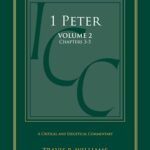Mission in the Old Testament: God’s Concern for the Nations (Part 4)
Some time ago I took up the question of whether God intended ancient Israel to serve as a verbal witness proclaiming God’s salvation to the nations. In other words, did Israel have a “missionary mandate” in that she was commissioned directly by God to be a missionary to the nations? In my first post I began to explore this notion of a possible “missionary mandate” for Israel. In the second post I considered the background for this idea, namely, the theme of God’s concern for the nations in the Pentateuch. In the third post I explored the perspective of the Psalter and the prophet Isaiah in extending God’s glory and worship to the nations. In this final post, I offer some concluding thoughts on a biblical theology of mission and its practical implications.
A Biblical Theology of Mission in the Old Testament
Based on the preceding, several elements coalesce to form a biblical theology of mission in the OT.
Israel and the Nations in the OT
In the preceding posts, we saw that God’s presence and activity were to reverberate through the whole created order (see also Scobie, “Israel and the Nations,” 286–94). God’s glory and the knowledge of him is to extend over all the universe and has regard to all the peoples of the earth. The call of Abram and the covenanted promise to bless him is not, then, to the ultimate exclusion of the nations but to their inclusion in that blessing. God’s concern has always extended to the nations, to all peoples. Yet a glaring absence of OT texts compelling Israel to go out and actively witness to the nations somewhat problematizes this clear universal concern. In the text of the OT this is best seen through two distinct fields of focus.
Historical Orientation toward Incorporation
Although in the OT the nation Israel comprises specifically the descendants of the twelve sons of Jacob, it is clear that at most stages of Israel’s history provision was made for incorporating people of non-Israelite descent. This would include acts of incorporation such as “the mixed multitude” that accompanied Israel out of Egypt (Exod 12:38), the assimilation of Rahab and her family into the tribe of Judah (Josh 6:25), the marriage of Ruth into Israel (Ruth 4:13–22), and the acceptance of foreigners within the royal court during the kingdom of David (2 Sam 11:3; 15:19–23). The stipulations of the Torah also show special concern for the status of the gēr, the stranger or sojourner who resides in Israel. A sojourner was anyone living in a foreign land, where he had no inheritance. Numerous laws guaranteed equal rights to sojourners living within Israel. They possessed parity in Israel’s legal courts (Deut 1:6; 24:17). They were to enjoy the privileges of Sabbath rest (Exod 20:10; Lev 16:29). They took part in the annual feasts, such as the Festival of Booths (Deut 16:14). They could even come before the altar to worship Yahweh, provided they approached him in the prescribed manner (Lev 17:8). Moreover, the Israelites were to show special regard and kindness to such strangers (Deut 10:18). They were to leave some of the harvest for them (Lev 19:10; Deut 24:19). They were to set aside portions of the larger, third-year tithe for them since they had no inheritance in the land (Deut 14:29). This mandated compassion toward the foreigner is distilled in Lev 19:34: “You shall treat the stranger who sojourns with you as the native among you, and you shall love him as yourself, for you were strangers in the land of Egypt: I am the Lord your God.” Despite these provisions and attitudes toward the outsider, incorporation, practically speaking, had strict limitations. It was limited in scale and often mitigated by an exclusivist tendency within Israel. Thus incorporation was chiefly individual rather than national and involved resocialization or nationalization rather than permitting continued trans-national or multi-ethnic distinctions.
Eschatological Orientation toward Ingathering
For this reason and others, a different way of relating to the nations is found in the eschatological orientation of the OT. Here a broader pattern develops. Given that Israel’s history was marred by disobedience and division, the hope of the prophets turned toward the eschaton and the great redemptive work that Yahweh would accomplish. The proclamation of God’s great work of redemption in the past through the exodus was rivalled by the promise of what he would do in the future. This hope entailed first the reunion and regathering of the people of Israel in tandem with the ancillary gathering of the nations who tangentially participate in the revived status and renewed aspirations of eschatological Israel.
Within these expectations patterns began to emerge. (1) There was the hope for the reconstitution and revival of the nation Israel. This involved, first and foremost, the regathering of the tribes of Israel (Behold, these shall come from afar, and behold, these from the north and from the west, and these from the land of Syene [Isa 49:12]). Ezekiel 34 depicts this through the extended metaphor of a shepherd rescuing and regathering his sheep (Ezek 34:12–13, 15). (2) There was the promise of the reunion of God’s people. Especially in view of the division between the northern and southern kingdoms, God promises to restore and reunite his people. Jeremiah’s new covenant is with the house of Israel and the house of Judah (Jer 31:31). Ezekiel depicts this through the prophetic sign-act of the two sticks joined together (Ezek 37:15–23). (3) The regathering and reconstituting of Israel brings with it the corollary ingathering of the Gentiles. This entails an eschatological reversal in the fortunes of Israel and the nations and in their respective statuses. Related to this is the dialectical tension that I mentioned earlier: in some respects the nations have equal claim to God, while in other respects Israel retains her privileged role above the nations. The tribute of nations will be brought (Isa 60:3, 5, 6). The nations will proceed to Zion to worship the true God (Isa 2:2–4). Foreigners will join Israel in the worship of the true God (Isa 56:6–7; Zech 2:11). While many of these texts are correlated properly as millennial texts envisioning worship during Jesus’ physical, 1000-year reign, I think that we may derive principles from this eschatological hope. God intends at the end of the age to bring in the nations in fulfillment of the promise to bless them through Abraham. Thus we should not be surprised when this universal concern gains hands and feet in the NT proclamation of the gospel to every tribe, people, and nation.
OT Foundation of Mission as the Backdrop for Jesus and the Apostles in the NT
Moving to the context of the NT, much debate has focused on the foundational role furnished by the OT as well as the orientation Jesus himself displays toward the nations. On the one hand, the single reference Jesus makes to proselytization is a negative one: “Woe to you, scribes and Pharisees, hypocrites! For you travel across sea and land to make a single proselyte, and when he becomes a proselyte, you make him twice as much a child of hell as yourselves” (Matt 23:15). On the other hand, Jesus shows concern for outsiders, for Gentiles, and for the nations, by his healing of the daughter of a Syro-Phoenician woman (Matt 15:22–28), his healing of the demoniac of the Gerasenes (Mark 5:1–15), his ministry in Samaria (John 4), and his reference to other sheep not of this fold (John 10:16), to name a few. Jesus consistently related himself, his message, and his mission to the Old Testament.
Jesus in the main restricted his message and ministry to the lost sheep of Israel (Matt 10:5–6; 15:24). Paul affirms in Rom 15:8 that Christ became a servant to the circumcised. Jesus focused his ministry principally on the offer of the kingdom to Israel and in terms of the reconstitution and revival of the nation. And yet Jesus aligned himself with the eschatological hope of the OT prophets. That hope regarded the inclusion of Gentiles in the salvific blessing as an eschatological reality. Jesus proclaims: “I tell you, many will come from east and west and recline at table with Abraham, Isaac, and Jacob in the kingdom of heaven, while the sons of the kingdom will be thrown into the outer darkness. In that place there will be weeping and gnashing of teeth” (Matt 8:11–12). In terms of the final judgment Jesus announces that some foreigners will be better off than the Jews of Jesus’ own generation who rejected him: “The queen of the South will rise up at the judgment with the men of this generation and condemn them, for she came from the ends of the earth to hear the wisdom of Solomon, and behold, something greater than Solomon is here. The men of Nineveh will rise up at the judgment with this generation and condemn it, for they repented at the preaching of Jonah, and behold, something greater than Jonah is here” (Luke 11:31–32). Jesus’ cleansing of the temple, specifically the Court of the Gentiles, is grounded in the prophetic concern that the temple might be a house of prayer for all nations (Mark 11:17=Isa 56:7). This international concern flowers in the wake of Jesus’ commission of the apostles so that the message of the gospel proceeds in concentric circles in the book of Acts to the Jews, to the Samaritans, and to the Gentiles.
Implications and Conclusions: The Matrix of Mission in the OT
We may summarize our conclusions in the following propositions.
Israel Is the Arbiter of Blessing and Judgment to the Nations
This tension remains intact in Scripture. Israel brings blessing and cursing through its agency as stipulated by the Abrahamic covenant. Blessing comes to those who respond rightly and come to worship the true God localized in Jerusalem. And yet Israel likewise brings judgment upon the nations, exhibited starkly in events such as the exodus and the conquest of Canaan. These twin themes may be found most notably in the Psalms and in the prophets.
The Nations Are Attracted and Mobilized by God’s Glory on Display Through Israel’s Redemption and Proper Worship (i.e., Missionary Ideals vs. Missionary Praxis)
Eckhard Schnabel notes that missionary ideals pervaded ancient Israel’s sacred Scriptures and should have been the norm in her practices, but this is to be distinguished from missionary praxis. In other words, a universal concern for the nations was recurrent and notable (missionary ideal), but the active propagation of a salvation message was conveyed to the end times (missionary praxis). Christopher Wright captures this by saying that although Israel was not sent out to the nations in the sense of a missionary mandate, she had a “missional role” in the midst of the nations, which concerned her identity and role as the mediator of God’s intention to bless the nations (The Mission of God, 24–25).
Salvation of the Nations Is Primarily Eschatological, through the Agency of the Servant of the Lord and the Remnant of Israel
As noted earlier, this Gentile movement toward salvation is primarily an eschatological phenomenon. The hinge or pivot is with the Servant of the Lord in Isaiah. The Servant is not only a witness of Yahweh’s salvation but serves as Yahweh’s messenger to the nations. This corresponds with the NT focus on the inauguration of the end times with the coming of Christ. From a NT perspective, the epochal incarnation, death, resurrection, and ascension of Jesus has thrust the church into the period of the last days (e.g., 1 John 2:18 “we know that it is the last hour”; Heb 9:26 “he has appeared once for all at the end of the ages to put away sin”; 1 Cor 10:11 “upon whom the end of the ages has come”; Gal 4:4 “the fullness of times”; Heb 1:2 “in these last days he has spoken to us by his Son”). Thus we would expect these eschatological hopes to begin to come to fruition in the ministry of Jesus and the apostles and of believers in the church age.
NT Mission Features both Amplification and Reversal of Mission in the OT
Thus, in conclusion, NT mission is both an amplification of the OT promise that the nations will experience God’s salvation and a methodological reversal from a primarily centripetal impulse to a primarily centrifugal impulse. Whereas the nations were to come to ancient Israel, the church is to go with the message of the gospel to all peoples. Israel failed ultimately in its task. We in the church must continue to pray earnestly that God would raise up laborers for the harvest field in this age, as Christ himself promised (and commanded) that the gospel would be preached to all nations (Matt 28:19–20; Mark 13:10; Luke 24:46–47). In correlating these truths, missionaries need not shy away from the OT or downplay its significance. We would have no Marcionite missionaries! The OT demonstrates that God’s concern for the nations has been evident all along. Mission work in this sense is grounded in the Abrahamic Covenant. Yet discontinuity with the OT also means that the NT church is by its very definition missional in a way that is distinct from Israel, as the nations are both the recipients and conveyers of the gospel message. The called-out church is essentially a missionary church. In the wisdom of the divine revelation of Scripture, this concern is manifested by stages in the outworking of redemptive history. We rejoice in this church age that God is saving people from every tribe and language and people and nation (Rev 5:9), and we look forward to worshipping with them in heaven.



